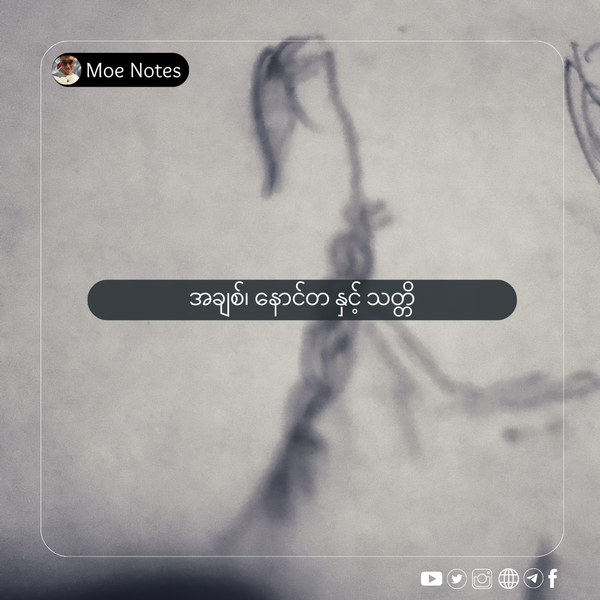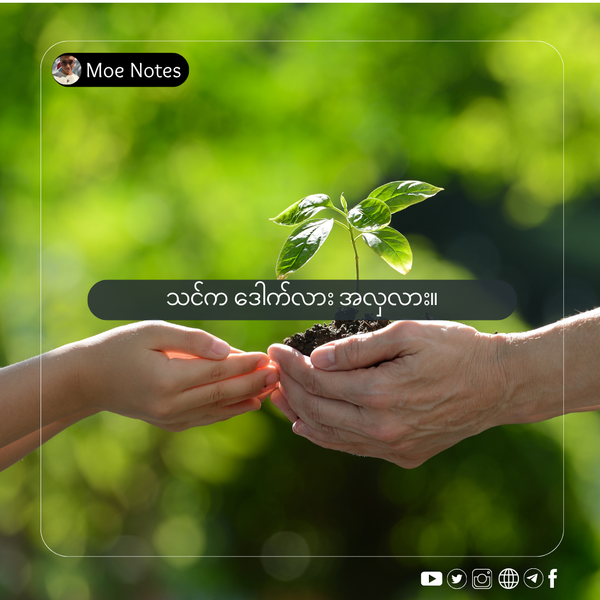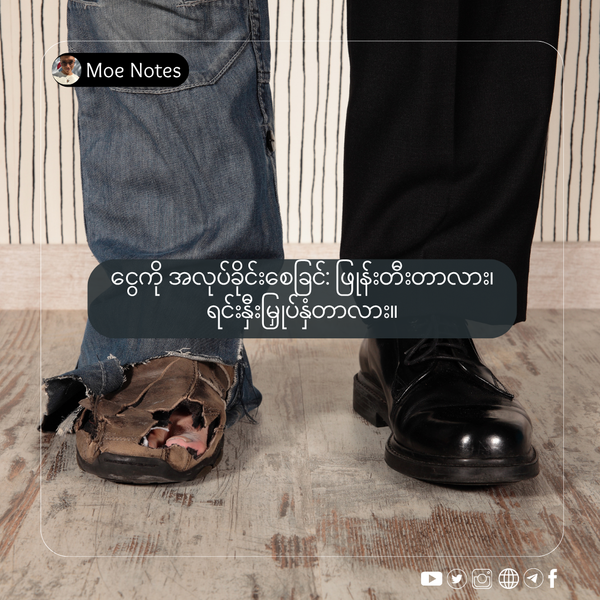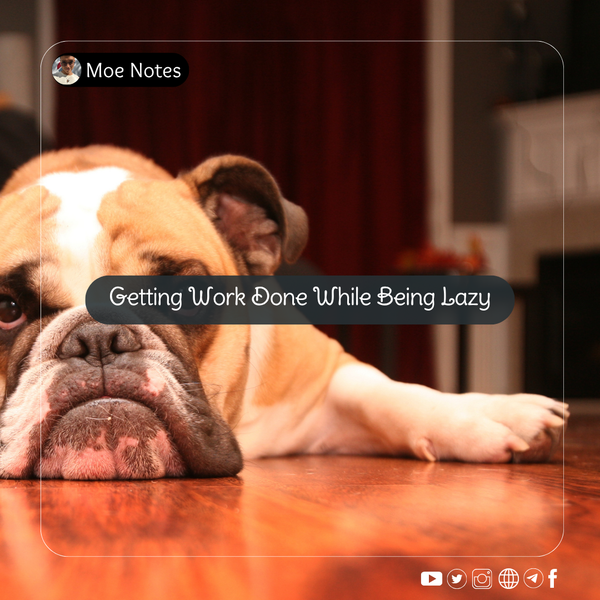A Student's Health Survival Guide for the UK
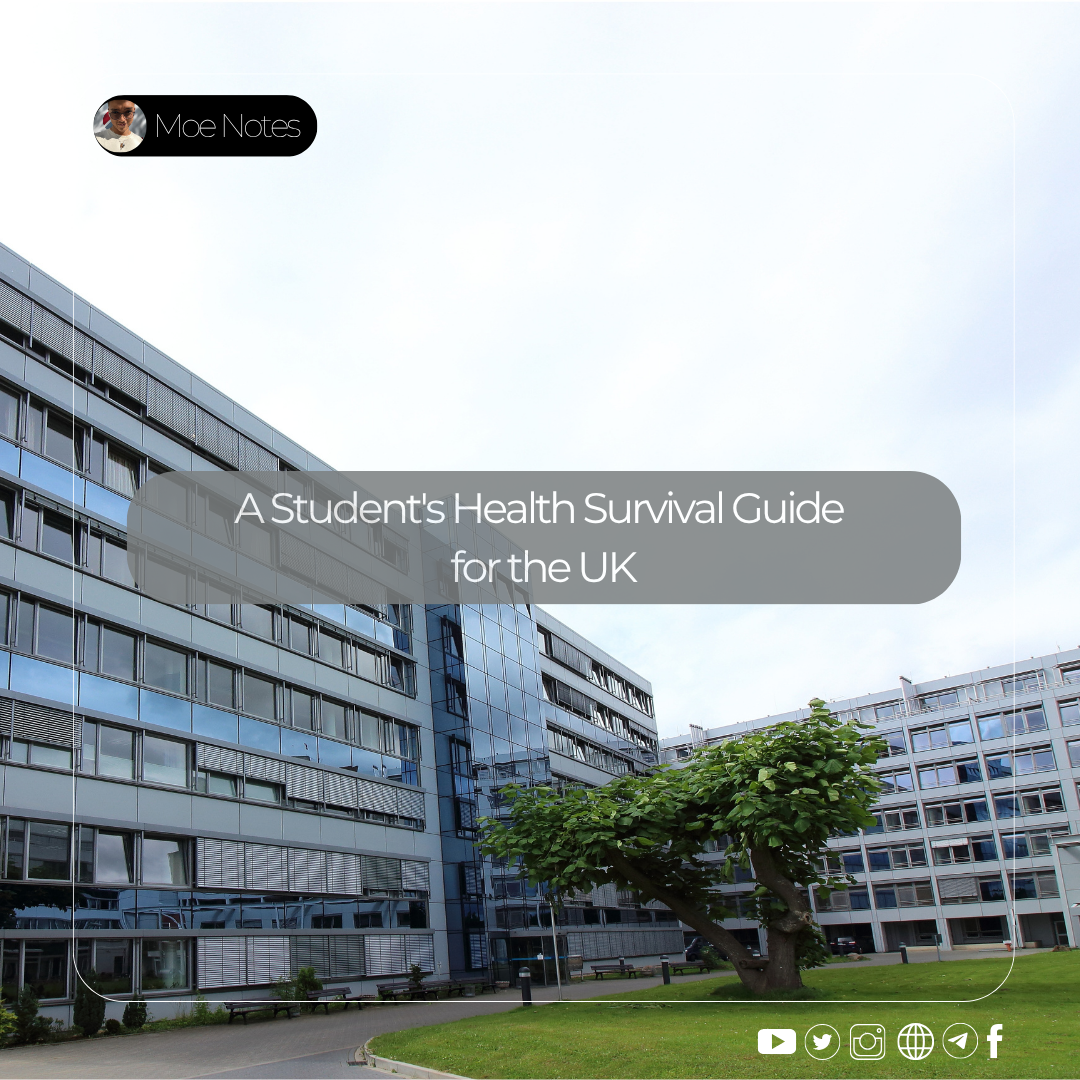
This article is also available in [Burmese]
"What clothes should I bring? How do I see a doctor? What is the food like? And what about the weather, dental care, and all the hidden costs?"
I waited for the right moment to write about health. What better time than when you're actually sick? My old nemesis, my teeth, have been giving me trouble again. Whether it’s from a lack of care when I was younger, naturally thin enamel, or just not brushing enough, I don't know. All I know is that my teeth hurt. Every time I drink something cold, eat something sweet, or even breathe in cold air through my mouth, there's a sharp pain.
I'm telling you this to set the stage. I am someone who actively cares about my health. I work out regularly and am conscious of what I eat. And yet, despite all this care, I still get sick. Health challenges are a part of life here, and this is your guide to navigating them.
Part 1: The Environment's Impact - Adapting to the UK Climate
The UK environment itself presents a series of unique health challenges that you need to be prepared for.
Sunlight, Sleep, and Your Mental Health: The Reality of UK Winters
The single biggest shock to the system is the dramatic change in daylight hours. In winter, the sun might not rise until 8 or 9 AM and can set as early as 4 PM. In summer, it can rise at 5 AM and not set until 9 PM. This wreaks havoc on your internal body clock.
Consider this scenario: "Mary" is a night owl. She stays up late and wakes up at 1 PM in the winter. By the time she has showered, had breakfast, and looked outside, the sun is already beginning to set. She only experiences 3-4 hours of daylight. For the next 9-10 hours until she sleeps, she is living in darkness. After weeks and months of this, it is impossible for any human to endure. Your mood will plummet, motivation will disappear, and a sense of depression can set in. I went through this bleak period when I first arrived; it felt like I was tired all the time, even when I wasn't doing anything.
Your Survival Strategy: Force yourself to maintain a regular sleep schedule. Go to bed earlier and wake up earlier to maximize your exposure to natural daylight, especially during the winter months. It is critical for your mental health.
Dressing for Survival, Not Just for Fashion: A Guide to UK Clothing
In Yangon, wearing a hoodie is a fashion statement. In the UK, it is a basic tool for survival. The weather here is not just cold; it is often damp, windy, and relentlessly unpredictable.
The clothes you bring from Myanmar will likely be useless. Most are designed for style, not for function in a cold climate. The key to staying warm and healthy is layering and choosing the right materials.
- Materials are Everything: Learn to read the labels on clothes. Your best friends will be Cotton and Wool. Avoid buying a "wool" sweater that is only 5% wool and 95% synthetic material. A real, quality wool or cashmere item is expensive, but it's an investment that will last and keep you truly warm.
- Build a Functional Wardrobe: You don't need a huge wardrobe, just a smart one. Here is a realistic list of what you'll actually need:
- Base Layers: 3 sets of thermal vests and leggings.
- Tops: 5 long-sleeved t-shirts, 10 short-sleeved t-shirts.
- Outerwear: At least one high-quality, waterproof, and warm puffer coat. Brands like The North Face are expensive for a reason, but you can find good deals online at stores like Sports Direct or JD Sports.
- Bottoms: 5 pairs of comfortable, thick joggers or trousers.
- Footwear: 1 pair of comfortable everyday sneakers, 1 pair of waterproof boots, and 1 pair of slides/crocs for indoors.
- Accessories: Around 10 pairs of thick socks, gloves, a scarf, and a warm hat.
Key takeaway: Set aside a specific budget to buy clothes after you arrive in the UK. Bringing a suitcase full of clothes from home is one of the most common and costly mistakes students make.
Part 2: The Economics of Well-being - Food, Healthcare, and Hidden Costs
Health isn't just about not getting sick; it's about the financial decisions you make every day.
Reframing Your Food Budget: Quality vs. Cost
Many people say food in the UK is expensive. It is, but the comparison is complex. If your diet in Yangon consists of cheap street food, then yes, the UK will seem incredibly expensive. But if you were already trying to eat a truly healthy, varied, and high-quality diet in Yangon (e.g., using pink salt instead of table salt, fresh-ground pepper, high-quality olive oil), you would know that it is also very expensive there, and the quality is often unreliable.
In the UK, the food quality is generally very high and reliable. You will likely find your health improves simply by having access to better ingredients. A diet full of instant noodles might be cheap, but it will harm your health in the long run. Remember the saying: "The stomach is the second brain." Eating well is essential for thinking well.
The Ultimate Guide to UK Dental Care (And How to Avoid a £1000 Bill)
This is the most critical part of this guide. Dental problems are common and incredibly expensive.
The UK has a two-tiered system: the government-funded NHS (National Health Service) and Private clinics.
- The NHS System: The Waiting List Problem. To see an NHS dentist, you must first register with a clinic. However, most clinics are not accepting new adult patients. If you do find one that is, you will be put on a waiting list that can be months or even years long. It is almost impossible to get an immediate appointment unless it's a dire emergency.
- The Private System: The Cost Problem. It's much easier to get an appointment at a private clinic, but the costs are astronomical. Here are some real, approximate prices:
- Initial Examination: £50+
- X-ray: £50 - £100
- Small Filling: £150+
- Wisdom Tooth Extraction: £300+ per tooth
- Crown or Implant: £1000+ A simple routine check-up that you might ignore could easily turn into a bill for hundreds of pounds.
Your Three Strategic Solutions:
- Register Early: The moment you arrive in the UK, find an NHS dental clinic that has an open waiting list and register immediately. Do it before you have any pain.
- Pay for Private: If you have a problem and can't wait, your only option is to pay the high private fees.
- Get Work Done Elsewhere: For major, non-emergency procedures, it can be cheaper to fly to another country in Europe (or even back to Myanmar or Thailand during a holiday), get the work done there, and fly back.
Key takeaway: Get a full dental check-up and complete any necessary work before you leave Myanmar.
Conclusion: The Real Definition of "Health Costs"
When you budget, "health costs" must be a real category. It's not just about medicine. It’s the money for a warm coat, for nutritious food, and for basic first-aid supplies (a simple bandage, antiseptic cream, and wipes can cost nearly £20).
Invest in your health. Being cheap in the short term—by skimping on food, wearing inadequate clothing, or ignoring a toothache—will inevitably lead to much higher costs in the form of illness, stress, and expensive medical bills later on. Take care of yourself.
